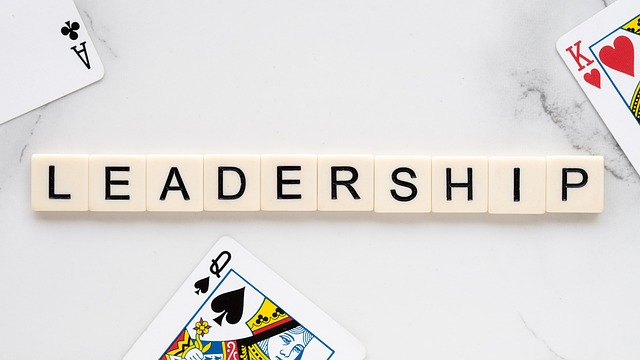
Leadership is a critical skill that is necessary for success in a wide range of industries and fields. A good leader is someone who can inspire and guide their team towards a common goal, while also making strategic and effective decisions.
But what exactly makes a good leader? And how can one develop the skills and qualities necessary to become a successful leader?
Let’s explore what makes a good leader.
Effective Communication
One of the most important qualities of a good leader is the ability to communicate effectively. A leader must be able to clearly convey their vision and goals to their team, as well as being able to actively listen and respond to the needs and concerns of their team members.
Leaders need to be able to adapt their communication style to different people and situations, provide constructive feedback, and have the ability to express themselves in a clear and concise manner.
Decisiveness and Effective Decision Making
Good leaders must possess the ability to be decisive and make effective decisions. A leader must be able to evaluate a situation, weigh the pros and cons and make a decision that is in the best interest of their team and organization.
The ability to think strategically and make long-term plans, as well as being able to make quick decisions in times of high stress or in a crisis, are signs of a good leader.
Inspiration and Motivation
Leadership also includes the ability to inspire and motivate others. A good leader is able to create a positive and productive work environment and to inspire their team to work towards a common goal.
Leading by an example, being able to give recognition and praise, and being able to provide opportunities for professional development are all traits of an inspiration and motivational leader.
Building and Maintaining Positive Relationships
Another important quality of a good leader is the ability to build and maintain positive relationships. A leader must be able to work well with others, to build trust and to create a sense of teamwork.
This includes being able to negotiate and resolve conflicts, being able to delegate tasks, and being able to build a sense of community within the team.
Adaptability and Continuous Learning
It’s also important to note that leadership can take different forms, depending on the context.
For example, there is a difference between leading a team, leading an organization, leading a country, etc. Each context has its own challenges and requires different skills and qualities.
How Can We Learn to be Better Leaders?
Leadership is not a one-time event, but rather a continuous process of learning, adapting, and growing.
A good leader is constantly seeking new opportunities to learn, to improve, and to develop new skills.
Here are several ways to learn and improve your leadership skills:
Education and Training
Enrolling in leadership development programs or taking classes at a college or university can provide formal education and training on leadership theory and practice.
Mentorship
Seeking out a mentor who is experienced in leadership can provide guidance, advice, and support in developing leadership skills.
Self-Reflection
Reflecting on past experiences and analyzing one’s own leadership style can provide insight into strengths and areas for improvement.
Reading
Reading books, articles, and blogs on leadership can provide new ideas and perspectives on leadership theory and practice.
Experience
Gaining experience in a leadership role, such as through internships or volunteer opportunities, can provide practical experience and the opportunity to apply leadership skills in real-world situations.
Practice
Practicing leadership skills in everyday interactions and situations can help to develop and refine these skills over time.
Feedback
Seeking feedback from others can provide valuable insight into one’s leadership style and areas for improvement.
Embrace Failure
Failure is a part of learning, and leaders should not be afraid to take risks and make mistakes. Failure can provide valuable learning opportunities.
Leadership is a critical skill that is necessary for success in many areas of life. Ultimately, becoming a better leader takes time, effort, and a commitment to continuous learning and development.
By being patient and utilizing these techniques, individuals can develop the skills and qualities necessary to become effective and successful leaders.
Discover Why Energy Management is More Important Than Time Management
There are countless books on time management and it’s all mostly the same information regurgitated with different takes by different authors.
Despite the plethora of information available, millions of people lead harried and tired lives as they rush from task to task. They’re always behind the 8-ball and never seem to have the time to get it all done.
Even when they manage to complete their chores and meet their commitments, they don’t feel fulfilled.
Something seems to be missing and they don’t know what it is. They feel purposeless and drained.
There must be a better way… right?
Yes… there is. It’s called energy management.
-
Why you need to manage your energy
Every day when you wake up, you’re ‘gifted’ a certain amount of energy. This energy is FINITE. So many people miss this crucial point.
You’re using up energy when you’re scrolling on social media, eating, working, exercising and so on. Throughout the day, your energy level is being depleted like fuel in a car that’s on a long journey. In your case, you’re ‘re-fueled’ at night while you sleep.
Now that you’re aware of your energy level, you’ll understand why it’s essential to methodically devote your energy to the right activities.
-
Working with your body
If you have a day job, your hours will be decided by the company you work for. If you’re working for yourself, you have a lot more flexibility to optimize your energy for the important tasks which move the needle.
Even if you have a day job, knowing how your body works will help you to use your energy wisely. It’ll be like engineering the best sail to harness the most wind.
For example, some people may hit the gym early in the day and this morning activity leaves them feeling refreshed throughout the day.
For others, working out in the wee hours of the morning may leave them drained and tired for the rest of the day. It’ll be a nightmare to do routine work when they’re moving at a glacial pace.
Depending on your energy levels throughout the day, you’ll want to tailor a routine than works for you.
-
Track your energy levels
Rate how you feel hourly throughout the day. Do this for a week and you’ll notice a pattern.
Maybe you’re highly alert and energetic from 7pm to 10pm. If that’s the case, you’ll want to do your most important work during this time. Of course, this applies to people who work for themselves. If you have a day job, you’ll be constrained.
-
Be ‘stingy’ with your energy
If you’re constantly tired, avoid using digital devices and steer clear from social media. The constant dopamine hits you’re getting from social media will not only affect your energy levels adversely, but reduce your attention span too.
The same applies to other ‘activities’ that drain your energy. Vexatious people, the depressing news on TV, and other energy ‘vampires’ should be avoided at all cost.
When you only use your energy on things that matter in your life, you’ll realize that not only do you feel less tired, but time management seems to take care of itself. You’ll get more done in less time.
-
Energy management VS time management
If you manage your energy, you’ll eliminate unnecessary activities and commitments that drain you. This will free up more time in your day.
Time management, however, focuses on doing tasks in a more efficient manner. Usually, people don’t stop to think if a task is important or not. So they end up busy… but not productive.
Over and above that, they get tired from being busy while doing unnecessary things.
This is why it’s better to focus on where your energy goes. Like they say, “Where your attention goes, your energy goes.”
Use your energy wisely to transform your life for the better.
“Be master of your petty annoyances and conserve your energies for the big, worthwhile things. It isn’t the mountain ahead that wears you out – it’s the grain of sand in your shoe.” – Robert W. Service
Creativity and Innovation
Creativity and innovation are vital components of any successful business, organization, or individual. They are the driving forces behind new ideas, products, and processes, and they are essential for staying competitive in today’s fast-paced and ever-changing world.
Let’s explore the concepts of creativity and innovation in depth, examining their definitions, the benefits they offer, and the ways in which they can be fostered and nurtured in individuals and organizations.
What is Creativity and Innovation?
Creativity is the ability to come up with new and unique ideas, concepts, or solutions. It is the process of creating something that has not existed before, or re-framing and drastically improving something that already exists.
Innovation, on the other hand, is the process of taking creative ideas and turning them into something tangible and useful. It is the implementation of new ideas, products, or processes.
In other words, creativity is about generating new ideas, while innovation is about putting those ideas into action.
The Benefits of Creativity and Innovation
There’s countless benefits of creativity and innovation. For individuals, being creative and innovative can lead to greater job satisfaction and personal fulfillment.
For organizations, creativity and innovation can lead to increased competitiveness, improved efficiency, and increased profitability.
Additionally, creativity and innovation can also lead to positive societal change, such as the development of new technologies or the creation of new industries.
How to Foster and Nurture Creativity and Innovation
Fostering and nurturing creativity and innovation is a vital task for any business, organization, or individual looking to stay competitive and successful in today’s fast-paced and ever-changing world.
Here are some practical steps that can be taken to foster and nurture creativity and innovation in individuals and organizations.
- Encourage a Growth Mindset: Having a growth mindset means believing that abilities and intelligence can be developed through effort, practice, and patience. Encouraging a growth mindset in individuals and organizations can foster a culture of learning and experimentation, which is essential for creativity and innovation.
- Provide Opportunities for Learning and Development: Providing opportunities for learning and development, such as workshops, classes, or mentoring programs, can help individuals and organizations develop the skills and knowledge necessary to be creative and innovative.
- Encourage Collaboration and Teamwork: Collaboration and teamwork are essential for fostering creativity and innovation. Encouraging collaboration and teamwork can help individuals and organizations share ideas and perspectives, and work together to develop new and creative solutions.
- Create a Supportive Environment: A supportive environment is one in which individuals and organizations feel safe to take risks and share their ideas. Encouraging open communication, providing constructive feedback, and recognizing and rewarding creativity and innovation can help create a supportive environment.
- Encourage Experimentation and Risk-Taking: Experimentation and risk-taking are essential for creativity and innovation. Encouraging individuals and organizations to experiment and take risks can help them develop new ideas and solutions.
- Provide Resources: Providing resources such as time, money, and technology can help individuals and organizations develop new ideas and solutions.
- Encourage Diverse Perspective: Encouraging diverse perspectives and ideas can foster creativity and innovation. This can be done by creating a diverse workforce and promoting an inclusive culture, as well as encouraging the participation of people from different backgrounds and disciplines.
- Encourage Reflection: Encouraging reflection and self-reflection can help individuals and organizations learn from their experiences and develop new ideas and solutions.
Creativity and innovation play a crucial role in the success of businesses, organizations, and individuals. These concepts are responsible for generating new ideas, products, and processes, and are vital for staying ahead in today’s rapidly evolving world.
To be successful, it is important to understand the meaning of creativity and innovation, acknowledge the advantages they provide and actively work on developing them in ourselves and our organizations.
By doing so, we can acquire the necessary skills and abilities to be creative and innovative in our personal and professional lives.





